Astronomy
-
 Astronomy
AstronomyWhat happens in Earth’s atmosphere during an eclipse?
The charged layer of Earth’s atmosphere gets uncharged during an eclipse, and that could have implications for everything from GPS accuracy to earthquake prediction.
-
 Astronomy
AstronomyWhat do plants and animals do during an eclipse?
A citizen science experiment will gather the biggest dataset to date of animal responses to a total eclipse.
-
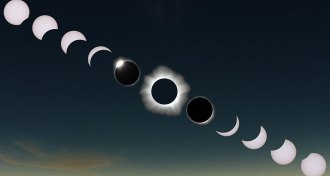 Astronomy
AstronomyWhat will scientists learn from the Great American Eclipse?
Between now and August 21, astronomy writer Lisa Grossman will explore the top questions scientists will tackle during the 2017 total solar eclipse.
-
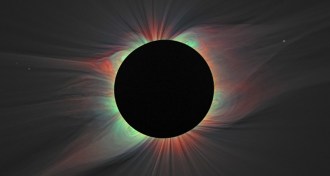 Astronomy
AstronomyWhy is this year’s solar eclipse such a big deal for scientists?
Total eclipses offer scientists a way to see all the way down to the sun’s surface.
-
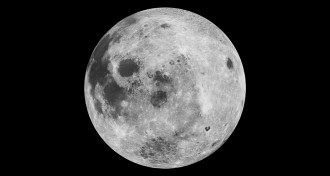 Planetary Science
Planetary ScienceMoon had a magnetic field for at least a billion years longer than thought
The moon’s magnetic field could have lasted until about a billion years ago.
-
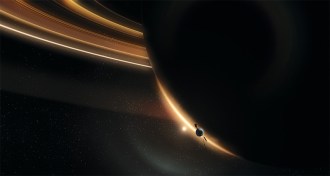 Astronomy
AstronomyNostalgic Voyager documentary relives first exploration of the solar system
A new TV documentary is a tender tribute to Voyagers 1 and 2, which launched 40 years ago and were the first spacecraft to visit the outer solar system.
-
 Astronomy
AstronomyThe solar system’s earliest asteroids may have all been massive
A team of astronomers says the original asteroids all came in one size: extra large.
-
 Science & Society
Science & SocietyYour solar eclipse experience can help science
The Aug. 21 total solar eclipse offers a rare opportunity for crowdsourced data collection on a spectacular celestial phenomenon.
-
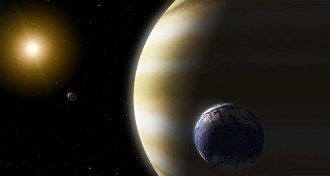 Astronomy
AstronomyAstronomers may have found an exomoon, and Hubble is going to check
A distant object may be the first exomoon detected.
-
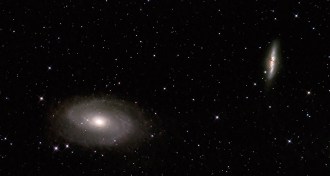 Astronomy
AstronomyHalf of the Milky Way comes from other galaxies
A galaxy may swipe up to half of its atoms from other galaxies, making the Milky Way mostly extragalactic stuff, new simulations suggest.
-
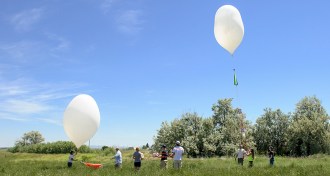 Astronomy
AstronomyBalloons will broadcast the 2017 solar eclipse live from on high
Astrophysicist Angela Des Jardins is coordinating the first-ever livestream of a solar eclipse filmed from balloons.
-
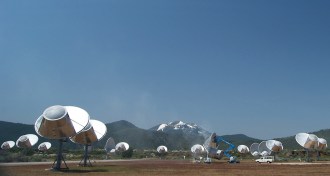 Astronomy
Astronomy‘Making Contact’ chronicles an astronomer’s struggle to find E.T.
For decades, astronomer Jill Tarter led the hunt for extraterrestrial intelligence, as detailed in a new biography.